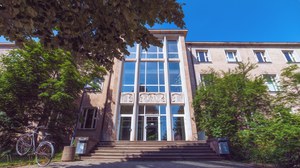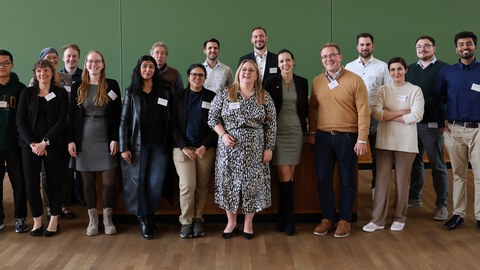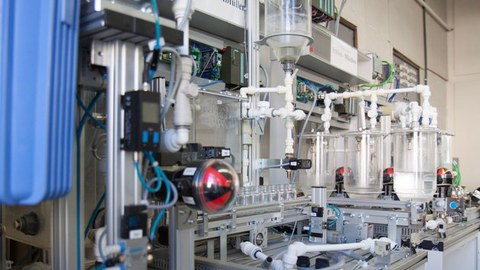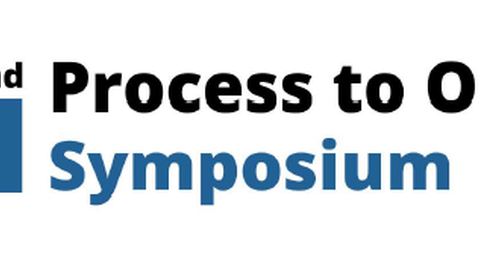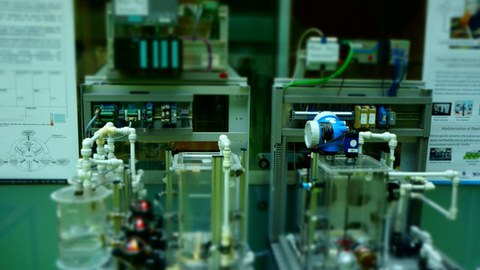Short presentation of the research group...
Digitalization and modularization are changing the process industrie as we know it. The Dresden Process Systems Engineering Group supports and shapes this ongoing digitization.
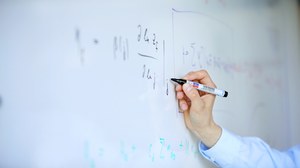 © Amac Garbe
© Amac Garbe
The Research Group
The Process Systems Engineering Group deals with the methods of process analysis, modelling, simulation and optimization related to current research topics of digitalization and modularization of process plants.
Methods
The research group Process Systems Engineering works on the analysis and synthesis of advanced and highly automated process modules. The portfolio of used methods includes experimental and theoretical modelling, simulation, optimization and automation of process systems.
Cross-links
- The Process Systems Engineering Group (Faculty of Mechanical Science and Engineering) and the Chair of Process Control Systems (Faculty of Elektrical an Computer Engineering) are highly connected to each other staff-wise and complement each other with regards to research topics.
- About 20 employees work and research togehter on digitalization and modularization.
- The research takes place within a strong network of national and international Associates in Research and Developtment.
- Cooperation with the P2O-Lab builds an interdisciplinary applied-research platform to enable changeable process chains.
History
Since the middle of 2015, Professor Dr.-Ing. habil. Leon Urbas leads the research group. At the same time he is head of Chair of Process Control Systems at the TU Dresden. This results in an enabling environment for the collabration of employees of both topic areas, and also broadens and diversifies the view on significant research topics of the process industry.
From 1992 until 2012, Prof. Dr.-Ing. habil. Wolfgang Klöden was head of the chair of Process Automation, which in 2015 was reformatted into the Process Systems Engineering group. After his retirement, he still remained strongly connected and supportive to the chair and continued giving lectures on process analysis and simulation with his passion and high attitude until he unexpectedly passed away in January 2017. In our memories he will always remain as a meritorious lecturer and magnificent person.

